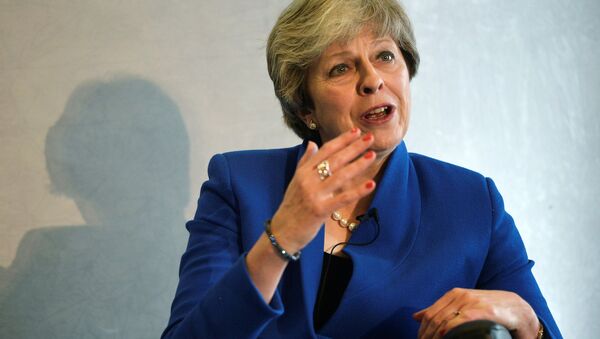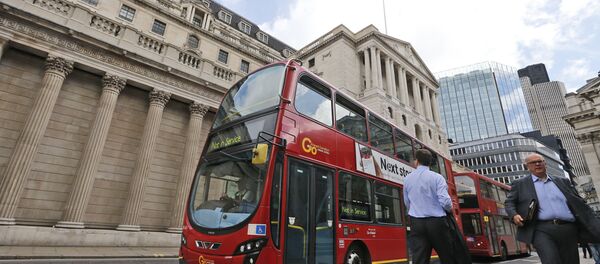Kristian Rouz — British Prime Minister Theresa May says the nation's economic model provides sustainable well-being to the people, and further GDP expansion is poised to accelerate despite the Brexit headwinds. She emphasized the importance of the low-tax environment that promotes private-sector incentive and criticized the Labor-advocated practice of state interventionism in the economy.
PM May started her career with the BoE in 1977, and she underscored the necessity to contain the accumulation of the public debt burden, including by means of monetary policy. In her speech, she also sought to highlight the differences between the New Tories and Labor in their approach to the broader economic policy.
Open-market economic model "led societies out of darkness and stagnation and into the light of the modern age," PM May said. "It is unquestionably the best, and indeed the only sustainable means of increasing the living standards of everyone."
May focused on the issue of national debt, stressing the "balanced approached" of her cabinet on budget matters — thus addressing the mounting calls for her and HM Treasury to abandon austerity policies.
"To abandon that balanced approach with unfunded borrowing and significantly higher levels of taxation would damage our economy, threaten jobs, and hurt working people," she said. "Ultimately, that would mean less money for the public services we all rely on."
Previously, opposition leader Jeremy Corbyn said capitalism is facing a "crisis of legitimacy", blasting the austerity policies of lower budget spending, and saying that the Labor planned-interventionist approach to the economy is "what most people in our country actually want."
PM May, however, said the cabinet won't change course, saying the UK's flexible yet solid labor market provides bright prospects to the economic future of the nation. Indeed, unemployment is low, and gains in salaries and wages fall in line with broader inflation, unlike in the US.
Prior to that, the Chancellor of the Exchequer set interest rates, taking advice from the BoE and HM Treasury officials. Some say, such an approach made more sense, as it was more predictable being tied to political events. For example, interest rates would go down after the Budget in order to boost economic expansion, whilst the rates would go up — an unpopular move — after a general election.
BoE Governor Mark Carney said, on his part, the BoE is currently focusing on overcoming the possible negative effects of the Brexit process to the UK economy.
"Banks will be capitalized so that they can withstand any severe shock that could be associated with Brexit — however unlikely — and still meet demands for credit," Carney said.
PM May, at the same time, sought to reassure businesses in her speech. She said the cabinet would take a more business-friendly policy approach, after delegating energy prices control to an independent body rather than a governmental regulator and limiting employee involvement on company boards.
Last year, PM May also blaster central bank policies of ultra-low interest rates, and her saying it again this time might indicate the UK's intent to tighten its monetary policies.






